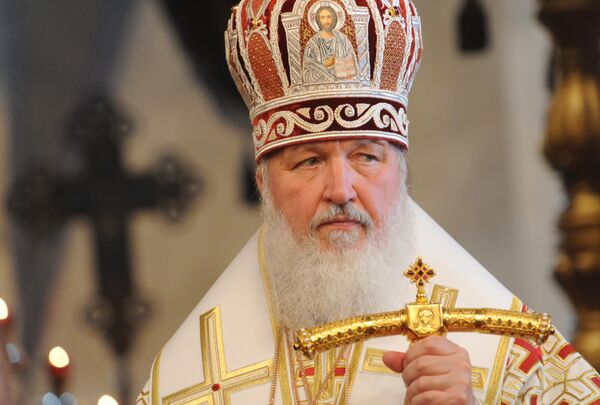The head of Russia’s powerful Orthodox Church, Patriarch Kirill, told the country’s leaders on Saturday to listen to and act on the demands voiced at recent mass protests over alleged vote rigging.
"If would be a very bad sign if the authorities remain insensitive to the sentiments of the protests - a sign of their inflexibility,” the patriarch said in an interview aired by the state Rossiya-1 TV channel at Orthodox Christmas.
“The authorities must readjust…and change their policies,” he added. “Society must have the right to express its dissatisfaction.”
Moscow and over cities across Russia have seen the largest anti-government demonstrations for some two decades over suspected vote fraud in favor of Prime Minister Vladimir Putin’s United Russia party at the December 4 parliamentary polls. Protesters are calling for a rerun of the elections and the dismissal of the election chief.
More protests are due in early February, just a month before the March 4 presidential elections in which Putin is to seek a third stint in the Kremlin.
The Russian Orthodox Church has enjoyed a dramatic rise in influence since the collapse of the atheist Soviet Union and Patriarch Kirill was recently granted official residence in the Kremlin.
And the patriarch earlier appeared to side with the authorities when he warned in late December of the dangers of Internet “manipulation.” The election protests have been fuelled by uploaded clips of alleged vote fraud.
But on Saturday he said that while the church could not take sides in the dispute, “lies must leave our political, economic social and personal lives.”
He also said that although there could be no comparison between the situation in Russia before the 1917 Bolshevik Revolution and during the era of perestroika - which preceded the collapse of the Soviet Union - the potential for unrest existed.
But the patriarch also said that Russians’ appetite for “confrontation” had been “exhausted” by earlier revolutions and turmoil.
His comments come two days after a senior Orthodox Church figure, Archpriest Vsevolod Chaplin, said that the demonstrations had changed Russia forever. Chaplin, who is responsible for church and society relations, also warned that the authorities could be "slowly chewed up," if they did not listen to opposition voices.
Opposition figurehead Alexei Navalny said in a recently published dialogue with writer Boris Akunin that he would like to see the church play a mediating role.
"I would very much like for the Russian Orthodox Church to take up such a role in society, so that all conflicting sides would seek and accept its mediation," Navalny said, while also noting that "almost everywhere the main intermediary between dictators and protesters has been the church."


